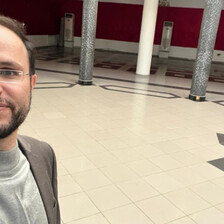The Electronic Intifada 17 December 2024

Our rejection of submission to tyranny is a collective affirmation of life.
ActiveStillsIn ancient Greek mythology, Prometheus defied the gods by stealing fire and giving it to humanity. His actions sparked an era of enlightenment and civilization for humanity, whom the gods saw as mere slaves, unworthy of light and freedom.
In their fury, the gods punished Prometheus severely. He was chained to a rock, and an eagle devoured his liver each day, only for it to regenerate every night, trapping him in an endless cycle of torment.
Prometheus had gifted humanity the symbol of knowledge and hope in a world ruled by darkness and injustice. His reward was perpetual suffering.
Prometheus’s tale echoes the broader human experience: suffering can fuel a journey toward a higher purpose.
In Gaza, people have endured relentless suffering, particularly during the past 14 months – all this preceded by 18 years of blockade and decades of brutal occupation.
Yet, like Prometheus, even as they face unimaginable loss, Palestinians in Gaza remain unwavering in their commitment to their principles and values. Paid in blood, deprivation, hunger and grief, their steadfastness comes at the highest price.
But is this sacrifice worth it? Can there be meaning in the pain that Palestinians in Gaza endure every day?
Consider Wael al-Dahdouh, the journalist who spent years covering the stories of fallen martyrs.
One day, while broadcasting live, he received the news of his own son’s martyrdom. In the face of such unimaginable loss, rather than collapse, Wael simply uttered the word, “maalesh,” “it’s okay.” His voice did not break; but those watching felt the depth of his grief and strength.
Or think of my uncle, Professor Hassan El-Nabih, who spent forty years of his life building his dream home.
He earned his Ph.D and his Master’s degree from the United States and dedicated his life to education. In a moment, a missile turned his home to rubble. Yet, standing over the wreckage, he proclaimed, “It’s okay. For Palestine.”
Tomorrow will be better
Then there’s my sister Nour, a schoolteacher and mother, who worked tirelessly to provide a future for her children.
The war took everything from her, but she refused to give in.
“It’s okay,” she would whisper, “tomorrow will be better.”
What allows people like Wael, Hassan and Nour to respond to devastation with resilience rather than despair?
Attitudes toward death and sacrifice play an essential role in Gaza’s resilience. Here, death really is a constant companion. Yet it is not viewed as an ending but as a continuation of a larger struggle.
Suffering, in this worldview, becomes a portal to another realm, where the values and principles people live for persist. The sacrifices we make are not in vain, they are for something far greater: a future in which justice, dignity and humanity triumph.
Resistance in Gaza is not merely a physical struggle, it is also a spiritual and philosophical act. It transcends the immediate physical pain and confronts the existential questions of what it means to live and die under oppression.
Our rejection of submission to tyranny represents a collective affirmation of life, of dignity and of refusing to let our humanity be extinguished.
Even in the darkest moments, when death looms large and life seems precarious, Palestinians in Gaza continue to fight. We rebuild what is destroyed, bury our dead and wake each day to an uncertain future. In doing so, we assert something profound: that our existence is more than just a series of tragedies. Our defiance, our survival, our resistance all speak to a deeper truth – that life, in all its pain and beauty, is worth defending.
This is the purpose of Gaza’s suffering. Like Prometheus’s stolen fire, it is a gift not only for us but for the world. Our endurance lights the path for those who face similar struggles, reminding us that – even in the face of overwhelming odds – there is always hope.
The resistance of Gaza is the embodiment of a powerful rejection: It is a refusal to accept injustice and subjugation and a call for the world to recognize that freedom and dignity are worth every sacrifice.
In the end, Gaza’s suffering is not without purpose. It is the flame that continues to burn, lighting the way forward, even when all else seems lost.
Asem Alnabih is an engineer and PhD researcher, currently based in north Gaza. He serves as the spokesperson for Gaza Municipality and has written for many platforms in both Arabic and English.





